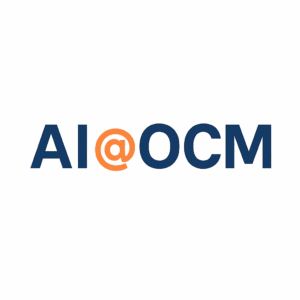Organizational Change Management (OCM) is critical in guiding companies through transitions smoothly and effectively. However, when paired with a flawed or broken project management (PM) framework, executing successful change can become significantly more challenging. This blog explores how OCM can operate around a deficient PM system, help improve both PM and OCM adoption, and drive meaningful transformation without overstepping into the domain of project management.
Understanding the Interplay Between OCM and PM
Before diving into solutions, it’s crucial to understand the relationship and distinct roles of OCM and PM within an organization. Project management focuses on the specific tasks and milestones needed to complete a project on time, within budget, and according to scope. In contrast, change management concentrates on the people side of change, ensuring that the workforce is ready, willing, and able to function effectively in the new ways that the project outcomes demand.
The Challenges of a Broken PM Framework
A broken PM framework often manifests through missed deadlines, budget overruns, scope creep, and project goals not aligning with strategic business objectives. These issues can significantly complicate the role of OCM, as the foundational structure needed to support organizational change is unstable.
Symptoms of a Broken PM Framework:
- Lack of clear goals and objectives: Projects may not have clear directions, making it difficult for the change management efforts to align with the project’s needs.
- Poor communication: Ineffective communication can leave team members and stakeholders inadequately informed about project statuses and changes.
- Inadequate risk management: Failing to identify or mitigate risks properly can lead to project failure, which affects the broader organizational change efforts.
Strategies for OCM to Function Effectively Around a Broken PM Framework
Enhancing Communication
One of the primary roles of OCM is to improve how changes are communicated throughout the organization. By establishing robust communication strategies, OCM can compensate for some of the communication shortfalls of a broken PM framework.
- Develop a comprehensive communication plan: This should detail who needs to know what, when they need to know it, and how information should be conveyed.
- Use multiple channels: To ensure that messages are received and understood by all employees, using a variety of communication tools is essential.
Fostering Leadership Alignment and Support
OCM professionals can bridge the gap in leadership that often accompanies a flawed PM approach by working closely with organizational leaders to ensure they are visibly supportive and actively engaged in the change process.
- Engage senior leaders: Regular briefings can help keep top management informed and involved, reinforcing the importance of their role in championing the change.
- Align middle management: Since middle managers often feel the brunt of change, ensuring they are on board and knowledgeable enough to support their teams is crucial.
Cultivating a Change-Ready Culture
Creating a culture that is adaptable to change can mitigate the effects of a broken PM framework by making the organization more resilient and responsive.
- Promote resilience training: Workshops that enhance employees’ ability to adapt to change can increase the organization’s overall agility.
- Recognize and reward flexibility: Acknowledging and rewarding behavior that supports change can reinforce a culture that embraces rather than resists new ways of working.
Implementing Effective Stakeholder Engagement
Stakeholder management is a common area where PM frameworks falter. OCM can enhance this aspect by developing strategies to identify and engage all stakeholders effectively.
- Map stakeholders: Identify all parties affected by the change and understand their influence and interest in the project.
- Develop engagement strategies: Tailor strategies to address the concerns and needs of different stakeholder groups.
How OCM Can Aid PM and OCM Adoption
OCM not only supports an organization around a weak PM framework but can also play a pivotal role in enhancing the adoption of both PM and OCM practices.
Promoting PM Principles Through OCM
OCM can indirectly promote better project management practices by emphasizing the importance of alignment and integration between changes and organizational goals.
- Integration at the planning stage: OCM professionals can advocate for the inclusion of change management considerations during the PM planning phase, ensuring better alignment from the start.
- Feedback loops: Incorporating feedback mechanisms into both PM and OCM processes can help identify issues early and adjust strategies proactively.
Strengthening OCM Practices
By demonstrating the value of change management in supporting project outcomes, OCM can enhance its adoption across the organization.
- Demonstrate value: Use metrics and case studies to show how effective change management has positively impacted previous projects.
- Tailor change methods: Customize change methodologies to better fit organizational culture and the specific nuances of each project, increasing their effectiveness and adoption rate.
Conclusion
While a broken PM framework poses significant challenges, effective OCM can not only navigate these difficulties but also enhance the resilience and change-readiness of an organization. By improving communication, fostering leadership support, cultivating a change-adaptive culture, and engaging stakeholders effectively, OCM professionals can drive the successful adoption of both project and change management practices. This strategic approach not only compensates for gaps in project management but also sets the stage for more robust and resilient organizational processes.






